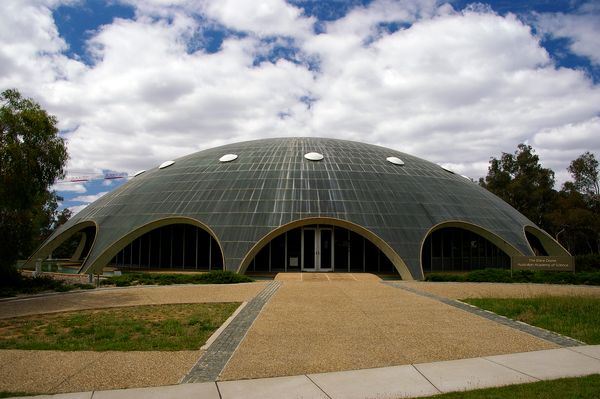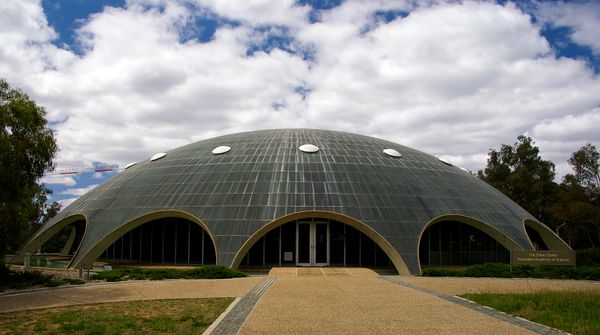Discovery Early Career Researcher Awards in Geoscience, 2022
The Australian Research Council (ARC) will be supporting 196 new early career research projects in Australian Government priority areas such as advanced manufacturing, cyber security, defence, food, beverage and agribusiness, medical technologies and pharmaceuticals, mining equipment, resource technology and services, critical minerals processing, oil, gas and energy resources, recycling and clean energy and space.
Professor Thomas said researchers in the early stages of their careers will benefit from the dedicated funding support provided by the DECRA scheme.
‘The DECRA scheme provides our promising early career researchers the opportunities and resources to advance their research and build diverse career pathways.’
Successful Geoscience Projects
Marissa Betts (University of New England): Exploring the nexus between global palaeogeography and the rise of animals. The Ediacaran–Cambrian periods (635–485 million years ago) capture one of the most critical events in the history of life, but are rarely the focus of global-scale palaeogeographic modelling. By employing a holistic, multi-proxy approach that synthesises vast fossil and geological datasets, this project aims to reconstruct continental positions to determine how shifting landmasses influenced the evolution of the first complex animals. Expected outcomes and benefits include a new, animated global model of continental evolution that can be used across a broad range of fields, particularly for studies investigating the development of Earth System processes and the biosphere in deep time, with potential applications in resource exploration.
Mark Hoggard (Australian National University): Sedimentary basins: Windows into the dynamics of Australian lithosphere. This project aims to investigate the structure and stability of the Australian continent. It will focus on improving predictive models of sedimentary basin development on the edge of thick lithosphere, which host large quantities of metal, hydrocarbons, and freshwater. Understanding their formation will enhance the ability to locate resources in frontier areas. The research combines state-of-the-art geodynamical modelling with the burgeoning quantity of geophysical and geological data collected by the government and research community. The project would build Australian research capability and stimulate novel approaches to critical problems, highlighting opportunities at the interface between academic and industry geoscience.
Catherine Vreugdenhil (University of Melbourne): Resolving ocean convection: new knowledge for a changing Antarctica. This project aims to improve our understanding of the role of convection on the Antarctic margins using a high-resolution, cutting-edge numerical approach. Convection is an important, but poorly understood oceanic process, which diverts heat away from the melting Antarctic ice shelves by transporting cold and salty water from the ocean surface to depth. The project outcomes will be new knowledge of the physics from novel numerical models and theory, supported by insights from observations and model parameterisations. This timely research will improve prediction of sea level rise due to a changing Antarctica and enhance our ability to adapt to future climate scenarios, providing significant environmental and health benefits to Australians.
Taryn Noble (University of Tasmania): Assessing the vulnerability of East Antarctica to future warming. This DECRA aims to address major gaps in our understanding of how the Antarctic Ice Sheet will respond to climate change, by enabling critical insights on its sensitivity to past climate warming. The project will apply a suite of geochemical approaches to determine – for East Antarctica’s most vulnerable basin – the extent of ice-sheet loss during past warming, and the impact of glacial meltwater on biological productivity and Southern Ocean circulation. New knowledge of how the ice sheet and ocean respond to climate warming, will lead to more reliable projections of future sea-level rise and climate. The DECRA will benefit Australia by providing a strong evidence base for policy decision-making to manage the impact of sea-level rise.
Chengxin Jiang (Australian National University): Tracking groundwater variations via 4-dimensional seismic imaging. This project aims to develop an advanced seismic framework to sense subtle subsurface changes related to groundwater variations beneath the Great Artesian Basin. Groundwater storage is subject to climatic and anthropogenic forcing, but modern monitoring tools are not sufficient to capture its detailed response in both time and space. Using novel techniques and extensive seismic recordings, this project expects to generate time-lapse images across the basin in unprecedented resolution to reveal the system's dynamic evolution and a static basin model to aid the interpretation. Potential benefits include improved geophysical techniques for groundwater tracking and enhanced scientific understandings to underpin future groundwater management.
David Hutchinson (University of New South Wales): Did ocean circulation changes build the Antarctic ice sheet? The evolution of the Antarctic ice sheet, from its beginning 34 million years ago (Ma) until today, is critical to our understanding of future climate change. This project aims to improve climate and ocean model simulations of the early Oligocene (30 Ma) and middle Miocene (15 Ma), using higher resolution and more accurate paleogeography than has previously been done. Expected outcomes include improvements to paleoclimate reconstructions, better constraints on future climate change, and a better understanding of the impact of ocean eddies on Antarctic climate. These outcomes should strengthen Australia’s long-term program of climate modelling, and enable more effective climate adaptation, mitigation and risk management.
Clement Duvert (Charles Darwin University): Breathing streams: integrating aquatic emissions into carbon budgets. This project aims to determine the amount of greenhouse gases emitted by small streams across the Australian tropics, a potential hotspot for emissions of carbon dioxide and methane. The project expects to investigate the controls on gaseous emissions from stream to regional scales using a novel combination of gas tracer experiments, remote sensing techniques and machine learning algorithms. Expected outcomes include the development of a predictive model of gas exchange and the first estimate of gaseous emissions from the Australian tropics. This should provide significant benefits such as reducing uncertainties on the national carbon budget and avoiding misalignment of greenhouse gas abatement policies.



